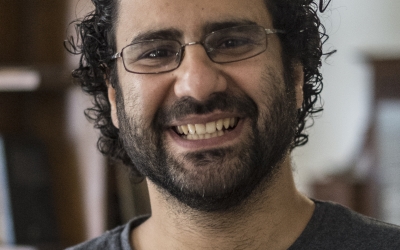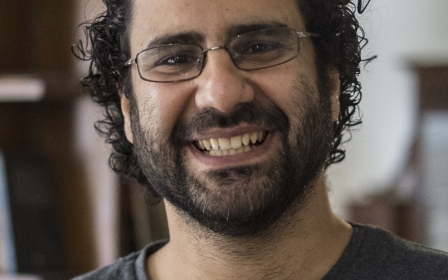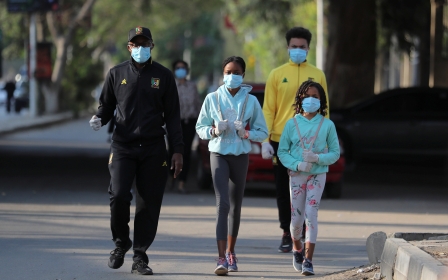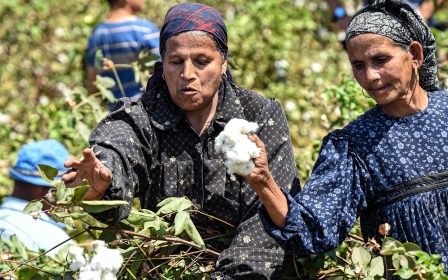Coronavirus: Egypt tests political prisoners as 'a preventive measure'
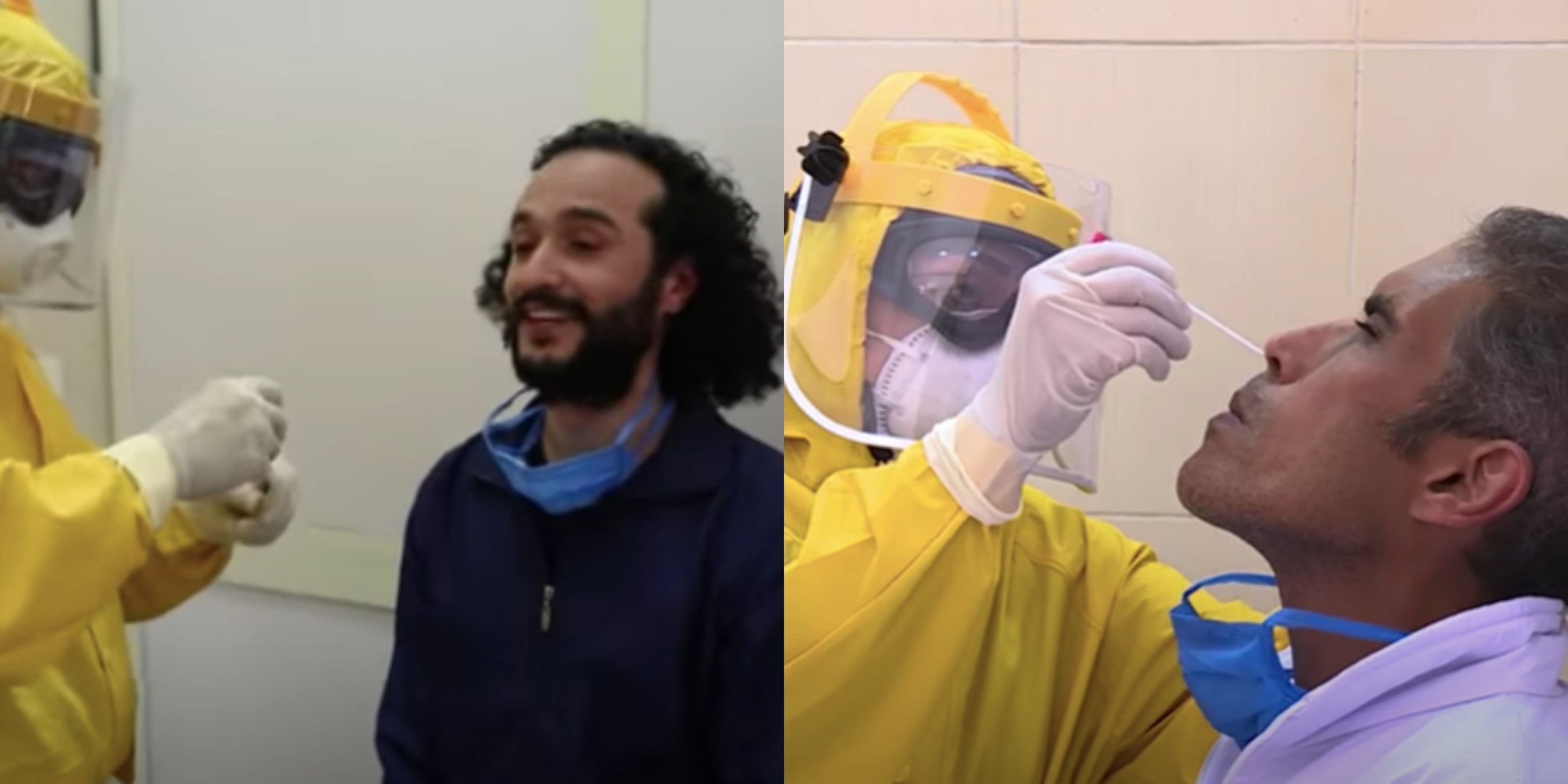
Egypt has revealed it is testing inmates at all its prisons for coronavirus, releasing rare footage of prominent political prisoners in the process.
It is unclear why all prisoners were being tested when the Egyptian government usually reserved tests for those displaying symptoms.
Preventive medicine teams affiliated with the interior ministry have been disinfecting all police and detention facilities nationwide as part of the government’s efforts to contain the virus, according to a statement.
“To guarantee the safety and health of workers and visitors of police facilities, as well as prison inmates, the Ministry of Interior continues to activate preventive medicine measures in those places, through conducting sanitisation and disinfection operations in accordance with a timetable,” the ministry announced in a promotional video posted on Facebook.
The video showed teams of preventive medicine workers wearing yellow personal protective equipment, spraying disinfectants on the walls and floors of various police stations and prisons.
New MEE newsletter: Jerusalem Dispatch
Sign up to get the latest insights and analysis on Israel-Palestine, alongside Turkey Unpacked and other MEE newsletters
The video also showed a number of inmates, including well-known political prisoners, being tested for the virus.
Those who appeared in the video include activist Ahmed Douma, who is serving a 15-year prison sentence on charges of anti-government violence.
Khaled Dawoud, another high-profile government critic, was also presented as an example of prisoners who underwent tests.
Dawoud was the media spokesperson for the opposition al-Dostour Party and is a former Al Jazeera correspondent.
The North African country has so far reported a total of 2,763 cases of the virus, and 196 deaths as of Thursday evening.
The ministry’s statement has triggered calls for the release of political prisoners, while some have asked if any have tested positive.
Amr Magdi, Egypt researcher at Human Rights Watch, said that any measures to protect prisoners were welcome, but a promotional video released by the interior ministry, itself accused of myriad human rights violations against inmates, was insufficient.
“The main concern is the inhumane conditions inside prisons and their overcrowded cells,” he told Middle East Eye.
“Many of those prisoners have been detained unlawfully in the first place.”
Magdi called for independent monitoring of prisons rather than relying on the government’s own reports, which mainly display “a defensive attitude” in response to criticism by human rights groups.
“Their promotional videos will continue to be unconvincing unless there is genuine transparency about what is happening in prisons,” he said.
Test results unclear
Magdi also raised a question about whether Douma and Dawoud had shown any Covid-19 symptoms, which the ministry’s video did not answer.
“Why are they tested? Are they infected? Do prisons have a different protocol about testing people even if they have no symptoms?” he asked.
Egyptian human rights lawyer Tarek Hussein echoed the same concerns in a Twitter post.
Translation: The Ministry of Interior has conducted a coronavirus test for journalist and former chairman of the Dostour party Khaled Dawoud. The question here is: is the test a precautionary measure, or does he have coronavirus symptoms? The second and more important question is: Why don't [authorities] release prisoners of conscience? Why is someone like Khaled Dawoud in jail?
Earlier this month, the UN human rights chief called on Egypt to release political prisoners and other non-violent offenders in an effort to combat the spread of the coronavirus in overcrowded detention facilities.
Michelle Bachelet's spokesman, Rupert Colville, said in a statement on 3 April that the world body was deeply concerned for Egypt's 114,000 inmates, who were often kept in prisons that were "overcrowded, unsanitary and suffer from a lack of resources".
Middle East Eye delivers independent and unrivalled coverage and analysis of the Middle East, North Africa and beyond. To learn more about republishing this content and the associated fees, please fill out this form. More about MEE can be found here.


